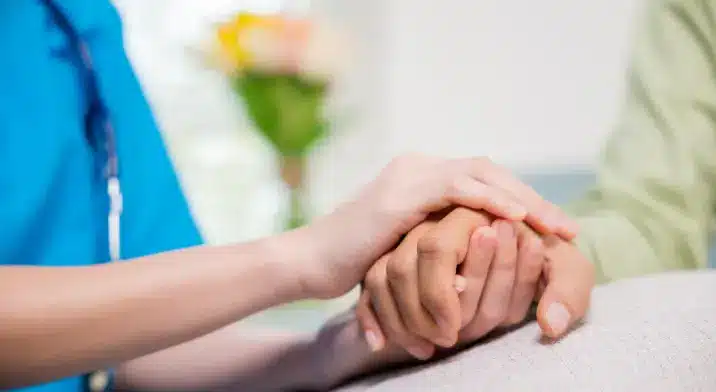
Professor Deb Loxton, Emma Byrnes and Dr Melissa Harris from the HMRI Women’s Health Research Program are conducting a study to reach consensus on a clear definition.
Professor Loxton says, “We did a scoping project to find out what needs to be researched in terms of violence against women. Trauma-informed care came up repeatedly. Not everyone agrees on what it is. Another thing that came up was telehealth access for rural women seeking trauma-informed care so we’ve designed a study to look at both of these things.”
The study, titled, ‘Unpacking Trauma Informed Care’, has two parts; a victim-survivor survey and a health and social welfare survey.
Professor Loxton says that half of women in their 20s have experienced sexual violence and one in three women has experienced some form of violence, whether it be sexual, family, intimate partner or violence they experienced as a child or in the community.
“It’s so common and it crosses all boundaries – socio-economic, urban, rural and age.
“Every third or fourth woman you meet has experienced some form of violence which they may or may not disclose. This is why people need to check their judgement.
“This is also why we need a succinct, clear definition of the essential elements of what trauma informed care is so we can then provide consistent training across services that address this. Many services are already doing a brilliant job with trauma-informed care, we want to recognize those essential elements that make these services so successful to assist with those services that might be struggling in this area.
“Ideally to offer a trauma-informed service, you will need to meet certain criteria.
“Women who have experienced violence are more likely to have chronic diseases and mental health issues.
“When these women access services – from the GP right through to Centrelink or even employment services – there needs to be a system-based approach to understanding the ways trauma can manifest,” says Professor Loxton.
Beyond identifying a clear definition of trauma-informed care, the study is also aiming to understand the feasibility of offering it via telehealth to women living in regional Australia.
Study manager Emma Byrnes says, “The ultimate goal is to develop recommendations to improve existing policies that support trauma-informed health care provision, using a consensus-based stakeholder consultation process.”
Want to get in involved? The criteria for both parts of the study are as follows:
Victim-survivors
Take the victim-survivors survey here.
Health and social welfare professionals (including but not limited to GPs, psychologists, social workers, occupational therapists, refuge workers, etc)
Take the health and social welfare professionals survey here.
HMRI would like to acknowledge the Traditional Custodians of the land on which we work and live, the Awabakal and Worimi peoples, and pay our respects to Elders past and present. We recognise and respect their cultural heritage and beliefs and their continued connection to their land.

Hunter Medical Research Institute
We’re taking healthy further.
Locked Bag 1000
New Lambton
NSW, Australia, 2305



This site is protected by reCAPTCHA and the Google Privacy Policy and Terms of Service apply.
Copyright © 2024 Hunter Medical Research Institute | ABN: 27 081 436 919
Site by Marlin Communications
